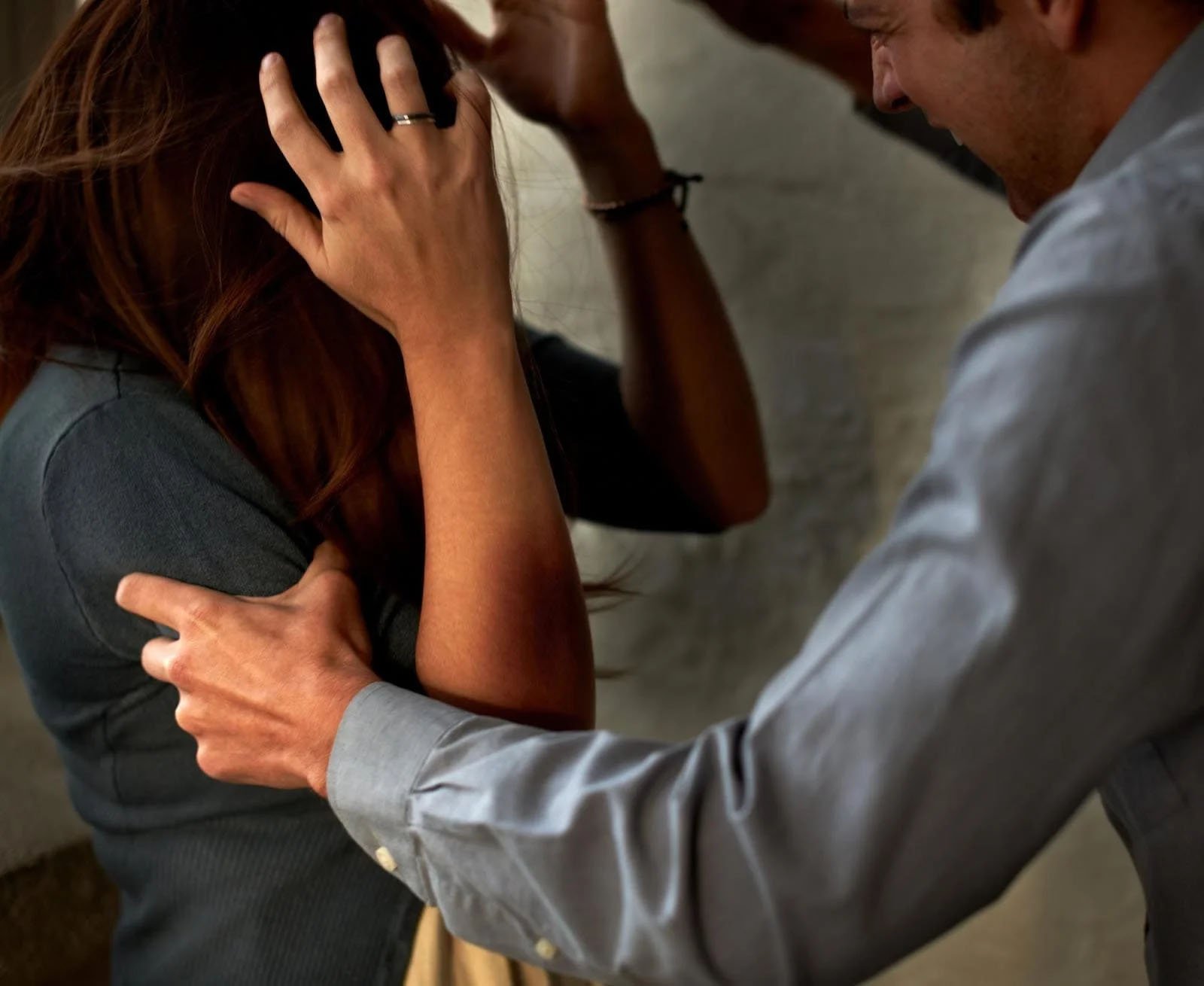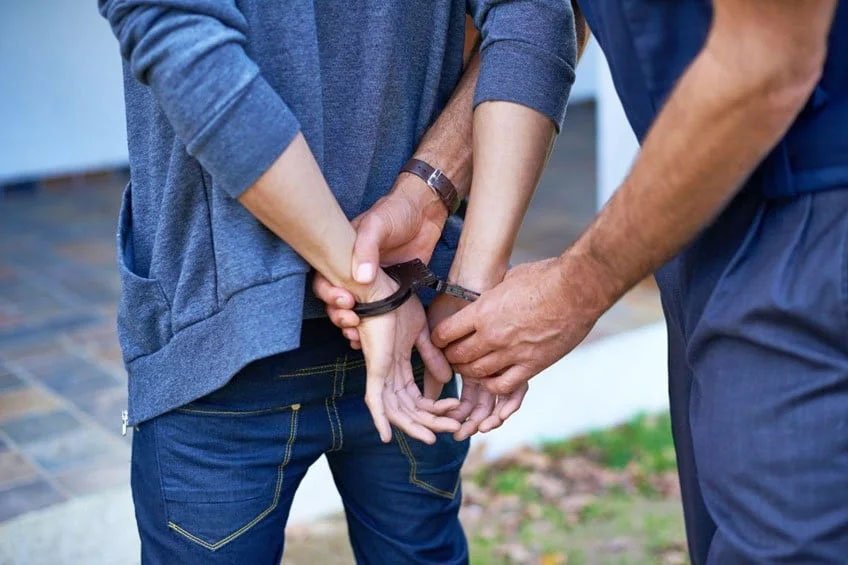
Personal Protection Orders (PPO) are Court-mandated orders taken out by an individual harassed by a family member. These orders help to prevent a family member from committing further acts of violence against a relative. When this PPO is breached, the perpetrator may be charged by the police. A breach is considered a criminal offence. The punishment can range from term imprisonment or a hefty fine.
Have you recently put out a PPO against a violent family member, only to have them harass you again? If you’re in a similar situation or know someone else who has not fulfilled the terms of the Court order, it’s important to know what to do.
What Are Personal Protection Orders?

A Personal Protection Order (PPO) in Singapore is a court order designed to protect victims of family violence. It falls under Part VII of the Women’s Charter. The main purpose of a PPO is to prevent further harm by prohibiting the perpetrator from continuing acts of violence.
Protection orders can be issued in two forms: the Protection Order (PO) under the Protection from Harassment Act (POHA) or the PPO under the Women’s Charter.
A PO protects victims from harassment, bullying, or stalking, and can be issued against anyone, including friends, colleagues, or strangers. The PO can prohibit the harasser from contacting or threatening the victim and may require the offender to undergo counselling or mediation.
In contrast, a PPO is specifically for family violence. It applies only to situations where a family member is violent or abusive. Family violence includes:
- Intentionally causing or attempting to cause harm to a family member.
- Confining or restraining a family member against their will.
- Harassing a family member to the point of causing mental anguish.
Additional protection orders, such as Expedited Orders (EOs) and Domestic Exclusion Orders (DEOs), may also be issued to further safeguard the victim. EOs offer immediate protection while waiting for the final decision on a PPO, and DEOs can exclude the abuser from the home. To obtain a PPO, the applicant must prove that:
- An act of family violence has occurred or is likely to occur.
- A PPO is necessary to protect the victim.
Who Can File For Personal Protection Order?
 In Singapore, several groups of people are eligible to file for a PPO to protect themselves or family members from family violence. You can file a PPO application if:
In Singapore, several groups of people are eligible to file for a PPO to protect themselves or family members from family violence. You can file a PPO application if:
- You are 21 years or older.
- You are applying to protect yourself, a child under 21, or an incapacitated family member.
- If you are incapacitated, a guardian or a person responsible for your care may file on your behalf.
- If you are under 21 but married (or previously married), you may file for a PPO yourself.
- A family member over 21 may apply on behalf of someone under 21 who is not married.
The definition of “family members” eligible for PPOs is outlined in Section 64 of the Women’s Charter. It includes:
- Your spouse or former spouse.
- Your child (including adopted and step-children).
- Your parents or in-laws.
- Your siblings.
- Any other relative the court deems part of your family.
- These provisions ensure that anyone at risk of family violence has legal recourse to seek protection.
What Constitutes A Breach Of A Protection Order In Singapore?
 A breach of a personal protection order (PPO) occurs when the respondent violates the specific terms set by the court. These terms typically include prohibitions against acts of harassment or family violence.
A breach of a personal protection order (PPO) occurs when the respondent violates the specific terms set by the court. These terms typically include prohibitions against acts of harassment or family violence.
For example, the perpetrator may be ordered to avoid any contact with the victim or to stop engaging in threatening behaviour.
If the respondent fails to comply with any of these conditions, it is considered a breach of the PPO. Violating a protection order is a serious offence, and the consequences can be severe.
When a breach of a PPO happens, the police may arrest the perpetrator without a warrant if they reasonably suspect a violation. The offender can face criminal charges, leading to fines, imprisonment, or both.
First-time offenders can be fined up to $2,000 and/or jailed for up to 6 months, while repeat offenders may face higher penalties, including a $5,000 fine or a 12-month prison sentence.
What Can Victims Do If Their Protection Order Has Been Breached?
 As soon as a breach of personal protection order occurs, victims should report it to the police immediately. Since a breach of a PPO in Singapore is an arrestable offence, the police can arrest the perpetrator without needing an arrest warrant once a report is lodged. The police will investigate the matter to decide whether to charge the respondent for the breach and/or any other offence that took place during the breach. In some cases, the police may also provide you with a referral letter to visit a hospital for medical examination and treatment. If the police choose not to pursue the claim, victims still have the option to file a Magistrate’s Complaint regarding the breach of personal protection order. Here are the steps in filing a Magistrate’s Complaint
As soon as a breach of personal protection order occurs, victims should report it to the police immediately. Since a breach of a PPO in Singapore is an arrestable offence, the police can arrest the perpetrator without needing an arrest warrant once a report is lodged. The police will investigate the matter to decide whether to charge the respondent for the breach and/or any other offence that took place during the breach. In some cases, the police may also provide you with a referral letter to visit a hospital for medical examination and treatment. If the police choose not to pursue the claim, victims still have the option to file a Magistrate’s Complaint regarding the breach of personal protection order. Here are the steps in filing a Magistrate’s Complaint
- Step 1: Complete the pre-filing assessment form.
- Step 2: Completely fill out the Magistrate’s Complaint form through the ACDA (Automated Court Documents Assembly).
- Step 3: Submit copies of the forms and other relevant documentation to the State Courts.
- Step 4: Wait for the outcome of your complaint.
Step 1: Complete The Pre-Filing Assessment Form
The pre-filing assessment form is used to determine whether your case is admissible. You will need to provide personal information such as your name, age, and IC number, along with details about the respondent, including their age, residency status, and the nature of the offence. Filing the application can be done online, where you will select an appointment time and pay a $1 fee. If you face difficulties with the online process, you can visit the courts or Protection Specialist Centres in person to file the application and make the payment.
Step 2: Completely Fill Out The Magistrate’s Complaint Form Through The ACDA
If the police are not pursuing further action after a breach of personal protection order, you can file a Magistrate’s Complaint. This can be done at the Crime Registry of the State Courts. If the Magistrate finds there are sufficient grounds, they may direct the police to investigate. When filling out this form, prepare copies of the following documents:
- Identification (NRIC/work permit/passport)
- Case card and/or police report
- Court orders (if allowed)
- Settlement Agreements (if present)
Sign up here and register if you don’t yet have a Community Justice Centre account. After your Court documents are finalised, they will be sent to the email you used in registering.
Step 3: Submit Copies Of The Forms And Other Relevant Documentation To The State Courts
After completing the form, submit all necessary documents through the Submission of Magistrate’s Complaint Forms page. This process takes around 5 minutes. Be sure to provide your contact details, such as your phone number and email address, for further communication.
While it’s not mandatory to provide evidence, doing so will strengthen your case. Evidence such as text messages, videos, or witness statements can help prove the breach of a PPO in Singapore and support police investigations or future court proceedings.
Step 4: Wait For The Outcome Of Your Complaint
Once your complaint is filed, you will need to wait for an appointment with the Magistrate. This could take a few weeks, depending on the complexity of the case. At your appointment, you will swear that the information you provided is truthful. A court counsellor or social worker may meet with you before you see the Magistrate. If the Magistrate proceeds with your complaint, a summons will be sent to the other party, requiring them to appear in court within 1 to 2 weeks. During the court mention, the respondent will be informed of the complaint and asked if they admit to the breach.
- If the respondent admits to the breach and consents to the personal protection order Singapore, the court will issue the PPO and Counselling Orders.
- If they do not admit or consent, the case will be referred to a court specialist for further discussion. If no agreement is reached, you may opt to proceed to trial.
Should you go to trial, both parties will be cross-examined, and the judge will review the evidence. After the trial, the judge will decide whether to issue the PPO. If the PPO is issued, both parties may also be subject to mandatory counselling, typically reviewed after 6 months by the court.
What Legal Actions Can Be Taken Against A Perpetrator For Breaching A Protection Order In Singapore?
In Singapore, breaching a Personal Protection Order (PPO) is a serious offence under the Women’s Charter. When a perpetrator violates the terms of a PPO, the state can take several legal actions to ensure the safety and well-being of the victim.
1. Arrest Without Warrant
A breach of a PPO is classified as an arrestable offence. This means that law enforcement officers have the authority to arrest the perpetrator without the need for a warrant if they reasonably suspect that a breach has occurred.
2. Criminal Prosecution
Once arrested, the police will investigate the breach. If sufficient evidence is found, the perpetrator may be formally charged and prosecuted in Court. The penalties for breaching a PPO include:
- First-Time Offenders: A fine of up to S$2,000, imprisonment for up to 6 months, or both.
- Repeat Offenders: A fine of up to S$5,000, imprisonment for up to 12 months, or both.
These penalties serve as a deterrent and reinforce the importance of complying with Court orders.
3. Enhanced Penalties for Vulnerable Adults
If the breach involves a vulnerable adult—defined as a person aged 18 or older who, due to mental or physical conditions, is unable to protect themselves from abuse—the penalties are more severe:
- First-Time Offenders: A fine of up to S$5,000, imprisonment for up to 12 months, or both.
- Repeat Offenders: A fine of up to S$8,000, imprisonment for up to 18 months, or both.
These stricter penalties reflect the heightened duty of care towards individuals who are less able to protect themselves.
4. Additional Legal Consequences
Beyond the immediate penalties for breaching a PPO, perpetrators may also face charges for other offences committed during the breach, such as assault, criminal intimidation, or harassment. These additional charges can lead to further fines and imprisonment, compounding the legal consequences.
Types Of Personal Protection Orders

There are four types of Personal Protection Orders executed in Singapore. These are classified as namely:
- Personal Protection Order (PPO)
- Expedited Order (PO)
- Domestic Exclusion Order (DEO)
- Counselling Order (CGO)
Personal Protection Order
When a stalker or an abuser has been issued a PPO, they are legally restrained from inciting domestic violence and abuse. They also cannot hire someone else to perform violent acts against the victim. The Court will carry out the PPO when they recognise that the perpetrator will likely strike again.
Expedited Order
An Expedited Order (EO) is a temporary restraining order placed against someone reported to have committed violent acts against a family member. Unlike the PPO, this Court application does not require a trial. Instead, it’s an immediate recourse for victims facing imminent danger by a family member. It takes 1-3 weeks to file an EO. However, the Court will only carry out the restraining order under the conditions:
- They have found sufficient evidence of violence against the claimant.
- The perpetrator shows clear and present danger to the claimant or victim.
EOs will typically last for 28 days, but the Court may extend this timeframe if they deem it necessary.
Domestic Exclusion Order
The Domestic Exclusion Order (DEO) is another tier of PPOs. This order prohibits the perpetrator from entering the victim’s home. The order may also apply to the protected family members’ residence. The claimant can file a DEO alongside a PPO. The Court will then issue the DEO after a hearing.
Counselling Order
The Family Justice Courts will issue a Counselling Order (CO) together with a Protection Order. Under Section 65 of the Women’s Charter, if the Court has named someone in a CO, they must attend counselling programmes at designated Social Service Agencies. Singapore’s Ministry of Social and Family Development administers the Mandatory Counselling Programme to keep families safe. There are two main objectives:
- To teach family members how to act respectfully and resolve conflicts.
- Offer support to family members to ensure their safety and security.
The counselling sessions are usually designed to help families understand the impacts of violence, plan for safety, and develop interpersonal skills to keep them safe. Each family will have different counselling needs. The counsellor will assess each case and provide the necessary community resources.
What You Can Do While Waiting For The Magistrate’s Outcome
 While waiting for the Magistrate’s outcome, it’s important to prioritise your safety. If you feel unsafe at home, consider staying with a trusted friend or relative. Discuss your situation with them and ask if you can stay temporarily.
While waiting for the Magistrate’s outcome, it’s important to prioritise your safety. If you feel unsafe at home, consider staying with a trusted friend or relative. Discuss your situation with them and ask if you can stay temporarily.
If this is not an option and there is a high risk of danger at home, you can seek help from the Ministry of Social and Family Development (MSF)-funded Crisis Shelters. These shelters provide temporary accommodation for victims of family violence when no safe or suitable alternatives are available.
Social service professionals at these shelters will work with you to address safety, financial, and emotional concerns, and help you find long-term housing solutions.
If you choose to stay at home, consider creating a safety plan. Pack an emergency bag with your identification, money, and essential items so you can leave quickly if needed.
In any case, you have the right to seek support from Family Violence Specialist Centres for help with social, emotional, and practical needs. Keep a list of emergency hotlines and contacts close at hand in case you need immediate assistance.
How To Defend Against A PPO In Singapore?
 If you are served with a summons stating that a family member has filed a PPO against you, it means you are the respondent in the case. The summons will provide the date and time for you to attend a court session, known as a court mention, where the details of the complaint will be shared.
If you are served with a summons stating that a family member has filed a PPO against you, it means you are the respondent in the case. The summons will provide the date and time for you to attend a court session, known as a court mention, where the details of the complaint will be shared.
- Receiving An Expedited Order (EO) – In some cases, the court may issue an Expedited Order (EO) if the situation is urgent. This order is temporary and must be followed. Any breach of the EO may lead to further legal consequences, such as police involvement and criminal charges.
- Attending Court Mentions – At the court mention, you will be informed of the complaint, and you’ll have the opportunity to respond. Depending on the circumstances, you may need to attend several court mentions, during which the case is discussed, and both parties’ positions are clarified.
- Counselling Or Hearing – If you do not consent to the PPO at the court mention, the court may refer both parties to counselling. If no agreement is reached, the case will proceed to a hearing. During the hearing, both the applicant and the respondent will present evidence, and the judge will make a decision based on the facts presented.
- Appealing The Decision – If the court issues a PPO against you and you disagree with the decision, you have the option to file an appeal with the Family Division of the High Court. This allows you to challenge the order, but it must be done within a specific timeframe after the hearing.
What Can The Courts Do Against The Perpetrator Who Breached The PPO?

A breach of personal protection order is a serious offence in Singapore. Under both the Women’s Charter and the Protection from Harassment Act (POHA), a breach of a PPO in Singapore is considered an arrestable offence.
This means the police can arrest the perpetrator without needing an arrest warrant if there is reasonable suspicion of a protection order breach.
Once the investigation confirms that a breach has occurred, the perpetrator may face criminal charges.
For first-time offenders breaching a personal protection order in Singapore, the courts can impose a fine of up to $2,000 and/or a jail sentence of up to 6 months. Repeat offenders can be fined up to $5,000, jailed for up to 12 months, or face both penalties.
If the breach involves a vulnerable adult (an individual aged 18 or older who is mentally or physically incapacitated), the penalties are harsher. First-time offenders can face fines of up to $5,000 and/or 12 months’ imprisonment. Repeat offenders may be fined up to $8,000 and jailed for up to 18 months.
In cases where other offences are committed during the breach of a PPO, such as assault or criminal intimidation, the courts may impose additional charges.
For instance, a mother who repeatedly breached a PPO filed by her teenage son was sentenced to 27 weeks in jail for voluntarily causing hurt and criminal intimidation, on top of the PPO breach.
The courts may also take further action by extending the jail time or increasing fines if multiple offences were committed during the breach.
What Can The Victim Do If They’re Not Satisfied With The Sentence
As a Court order breach is considered a criminal offence, only the prosecution and the respondent (accused) can file an appeal. Victims aren’t a party in the case, so they cannot appeal. However, the prosecution can appeal to have the sentence increased. This applies to cases where the punishment is deemed inadequate.
How Can I Report A Breach Of A PPO In Singapore?
If a Personal Protection Order (PPO) has been breached, it is important to take immediate action to ensure your safety and to hold the perpetrator accountable. Here are the steps you can take to report the breach in Singapore:
1. Contact The Police Immediately
A breach of a PPO is an arrestable offence, meaning the police have the authority to take immediate action. If you are in danger or if the breach has already occurred, call 999 or go to the nearest police station to file a report. Provide as much detail as possible, including the time, date, and nature of the breach.
2. Gather Evidence
To strengthen your case, collect any evidence that proves the PPO was violated. This may include:
- Screenshots of threatening messages or phone calls
- CCTV footage or photographs
- Witness statements from family members, friends, or neighbours
- Medical reports (if physical harm was inflicted)
Having clear evidence can help law enforcement take appropriate action against the offender.
3. Seek A Court Order For Enforcement
If the breach is serious and repeated, you may apply to the Family Justice Courts for an enforcement order. The Court will review the evidence and may issue further protective measures, such as an expedited order or additional restrictions on the perpetrator.
4. File a Magistrate’s Complaint
If the police do not take immediate action, you can file a Magistrate’s Complaint at the State Courts. A Magistrate may summon the offender for questioning and, if necessary, initiate further legal proceedings.
5. Reach Out For Support
If you feel unsafe or need additional assistance, seek help from family violence support services. Organisations in Singapore provide legal guidance, shelter, and counselling for victims of abuse.
Conclusion About Breach Of PPO In Singapore
Are you in need of legal advice and protection? Our team of professional family and divorce lawyers in Singapore here at Tembusu Law can help. We understand that such cases take a mental and emotional toll on those involved, particularly the victims.
As the leading Family Law firm in Singapore, we assist our clients in the fight for justice. We walk them through every step of the process and make sure they get their fair share. We handle Personal Protection Orders, family violence, and other cases covered under the Singapore family justice system.
In addition to family law expertise, we also offer the services of a dedicated criminal lawyer in Singapore to provide comprehensive legal support for a wider range of needs. Contact us now for a free consultation.
Frequently Asked Questions About Breach Of PPO In Singapore
Is PPO Considered A Criminal Record?
Yes. According to section 65 of the Women’s Charter, the guilty party is liable to pay fines and/or be sentenced to jail time.
Can A PPO Be Withdrawn?
If an applicant has previously filed a PPO but chooses to withdraw it, they must first receive permission from the Court before doing so.
What Is Considered Harassment In Singapore?
According to section 3 of POHA, an individual “… who threatens, abuses, or insults (whether by behaviour, words or other forms of communication) with the intention to cause and did cause another person harassment, alarm or distress, will be guilty of an offence”, has committed harassment.
Who Can Issue A PPO?
Within five days after the Court has finished its preliminary deliberation, they may issue the PPO. The decision will be based on the evidence, pleadings, testimonies, or admissions delivered by all involved parties.